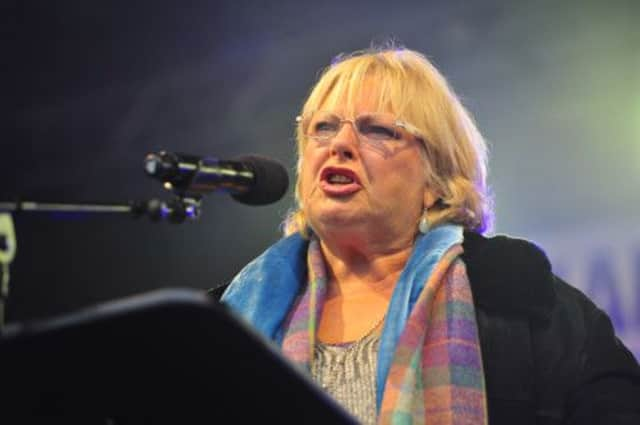Assisted suicide bill has real chance, says Margo


Ms MacDonald said her Assisted Suicide (Scotland) Bill would be “totally free” from party pressure as she claimed there had been a shift in attitudes among MSPs and a rise in public support.
The Lothians MSP made the claims as the bill was formally launched yesterday in Edinburgh, when medics, church leaders and lawyers backed the latest attempt to change the law on assisted suicide.
Advertisement
Hide AdAdvertisement
Hide AdMs MacDonald, who suffers from Parkinson’s disease, said that a Holyrood vote on the issue would not be influenced by the leaders of the main parties as she suggested the move would be considered by parliament next year.
Her previous attempt to legalise assisted suicide was defeated in the last parliament, but the MSP has made key changes to the proposals with safeguards to ensure patients are not coerced.
Ms MacDonald said the revised proposals include an “early warning” aspect, where any patient over the age of 16 can inform their GP of their support in principle for assisted suicide.
The early registration of intention could be noted in the patient’s medical records at any time, but it would have to be stated at least seven days before they can formally request help to end their life.
Ms MacDonald, when asked if the bill had a better chance of success this time, said: “Do I think it has got a chance? Yes I do actually.”
She said: “I have sensed from the beginning that there was a change because of the volume of support that we can demonstrate, I am pretty sure of that.”
MSPs may have been influenced by their party leaders when the previous bill was blocked at the first stage in 2010, despite a free vote on the legislation, Ms MacDonald said.
She said: “We were in the run-up to a general election. Well, we’re totally free of that now. People can just vote according to their own judgment.”
Advertisement
Hide AdAdvertisement
Hide AdOnly terminally ill patients or those with deteriorating progressive conditions which make life intolerable would be able to seek assisted suicide under the proposed changes.
Lib Dem MSP Liam McArthur, who is among the 19 Holyrood politicians backing the bill, claimed that the “public mood has shifted quite markedly” on assisted suicide.
Meanwhile, Ms MacDonald said that any requests to GPs must be backed up by a second professional opinion, and followed by a 14-day “cooling off” period.
This process is then repeated again with a second request, after which one of the doctors concerned supplies a licensed facilitator, or “friend at the end”, with a prescription to enable assisted suicide to take place.
Silvan Luley, of Swiss group Dignitas which helps those with terminal illness end their lives, said it was an “atrocity” that Scots did not have the right to assisted suicide.
Advocate Niall McCluskey, retired GP Dr Bob Scott and Reverend Scott McKenna also backed Ms MacDonald’s bill.
Mr McCluskey, a specialist in human rights law, said the bill would “bring some much needed clarity” to the law on suicide.
Dr Scott said that the law “should not deny any individuals the opportunity on making that choice” over assisted suicide.
Advertisement
Hide AdAdvertisement
Hide AdRev McKenna, a Church of Scotland minister, said Ms MacDonald’s plans were “an attempt to bring peace of mind” to terminally ill patients”.
A Scottish Government spokeswoman confirmed that cabinet members would be allowed a free vote on the bill and said the issue should be a “matter of conscience for all MSPs”.